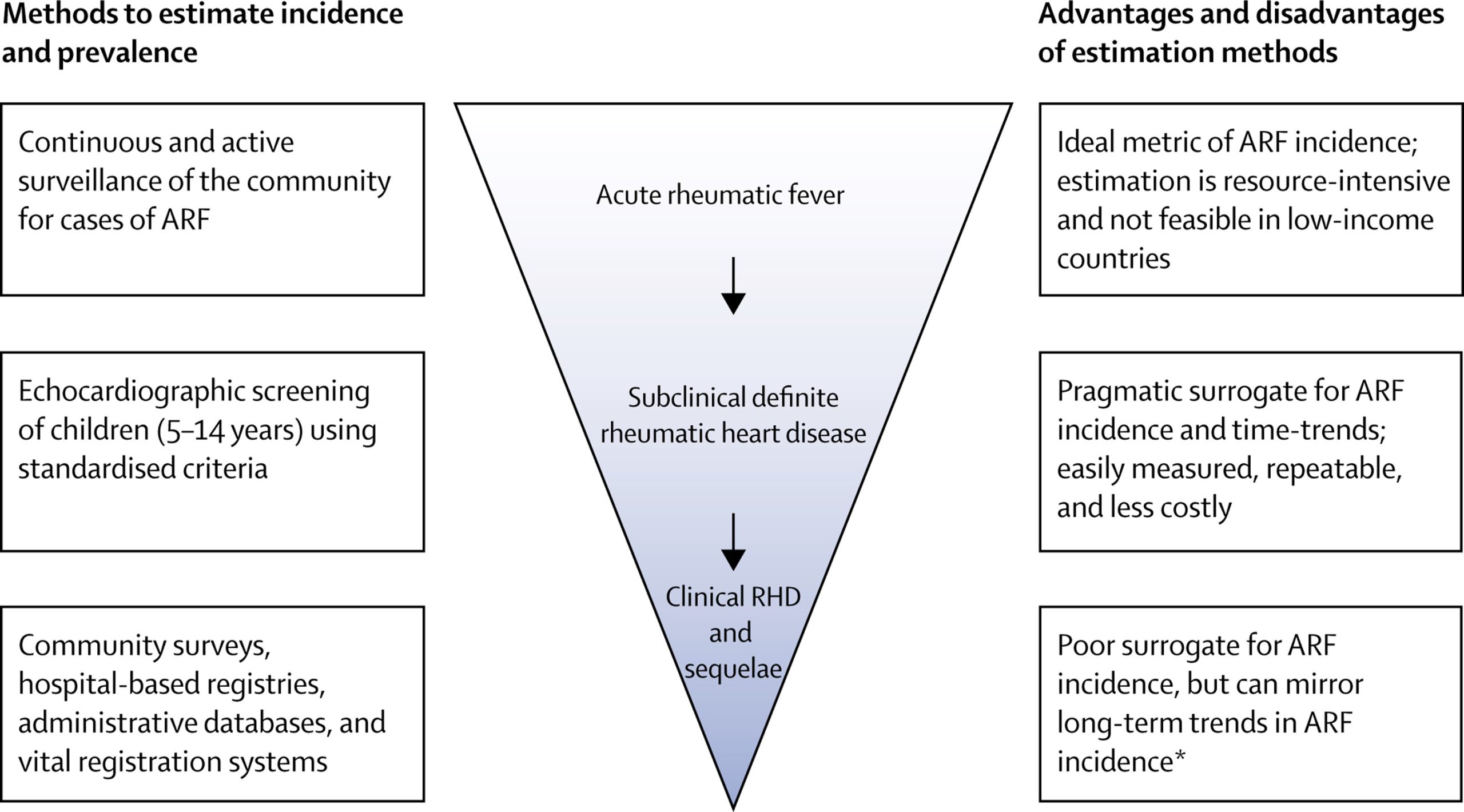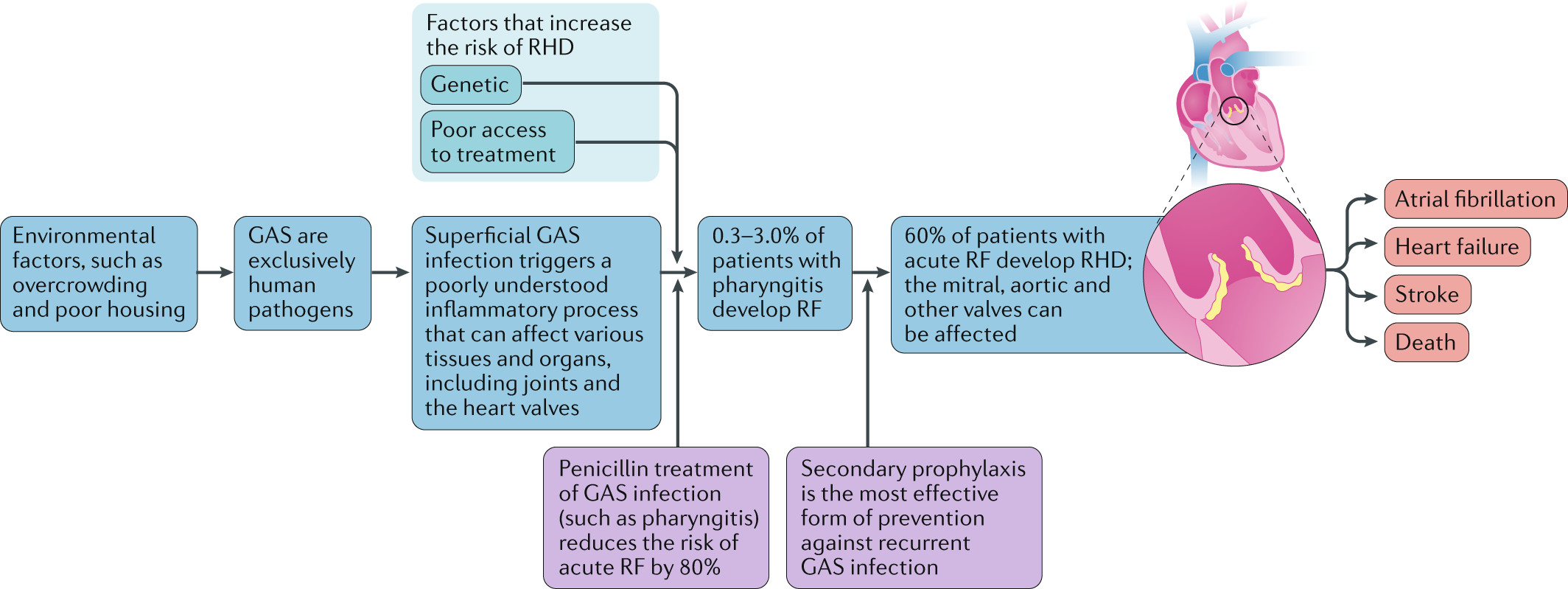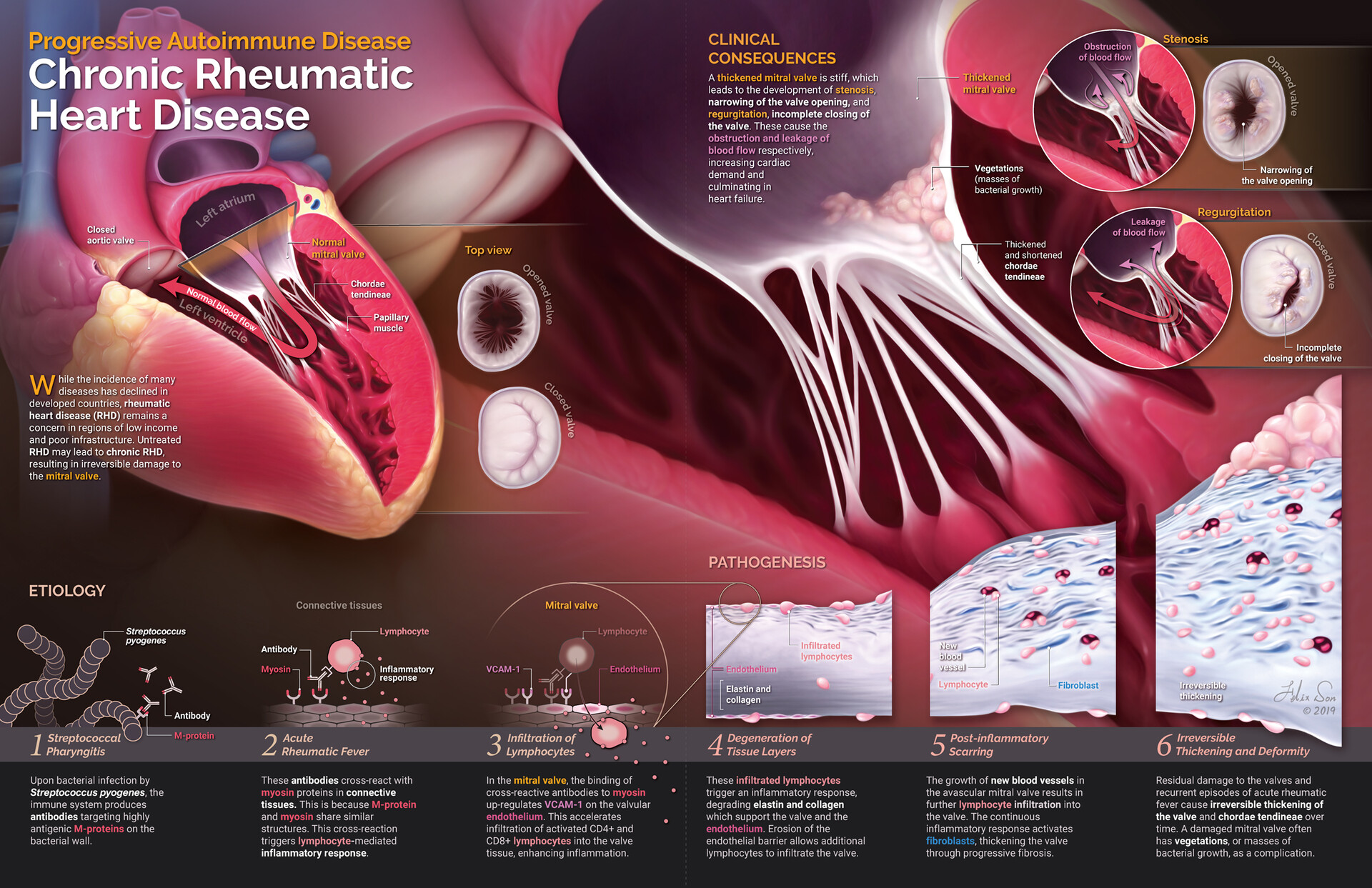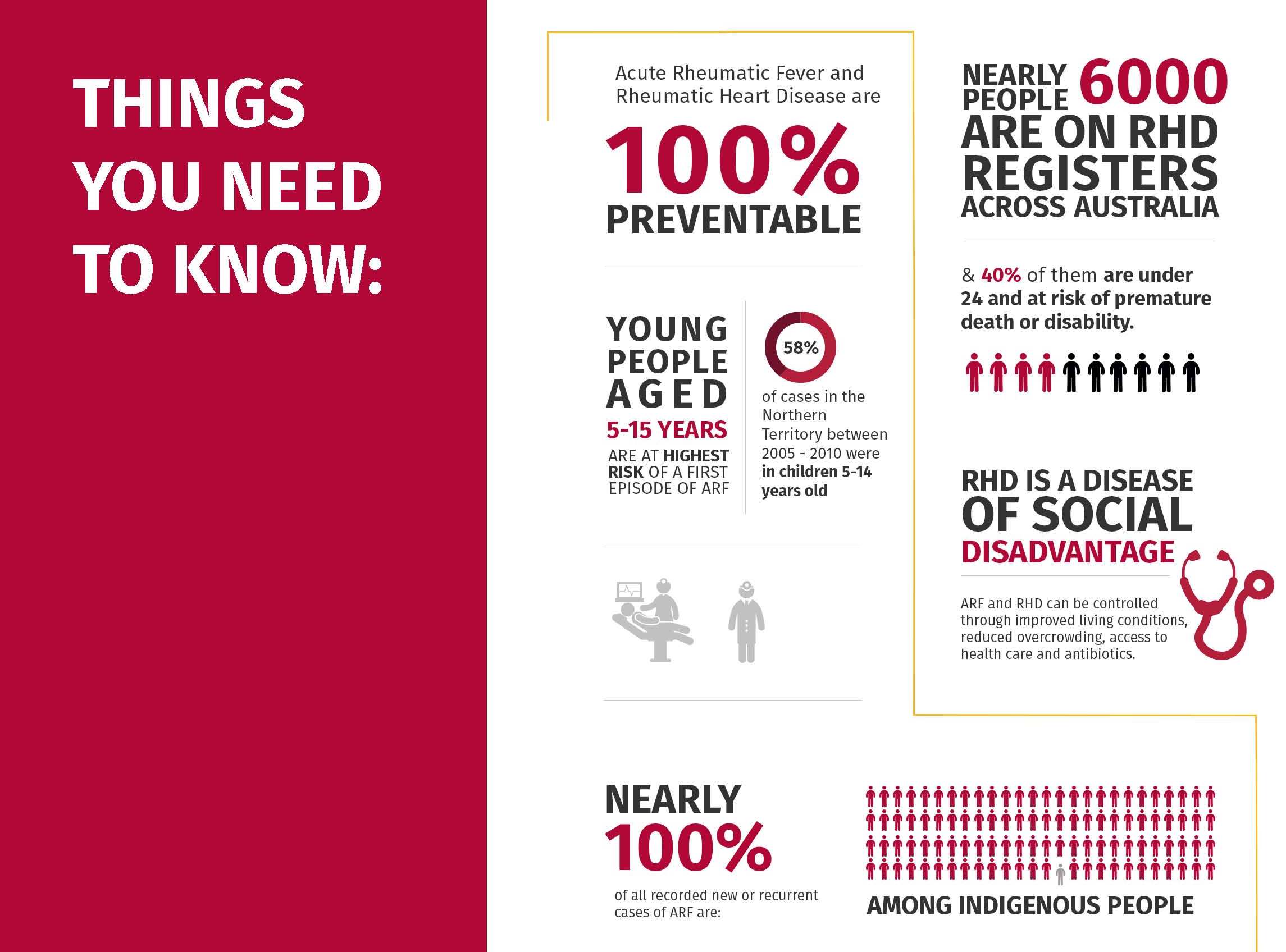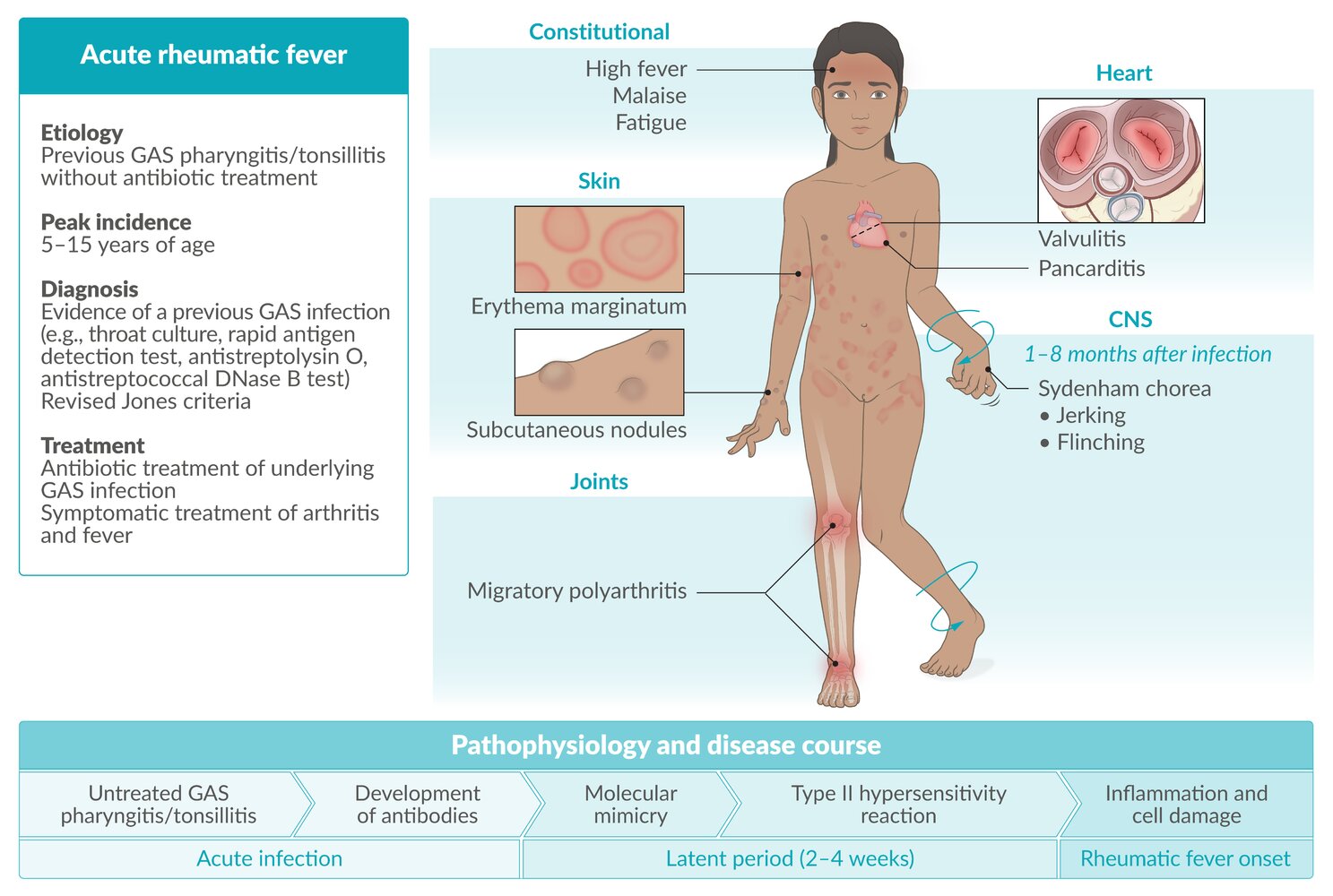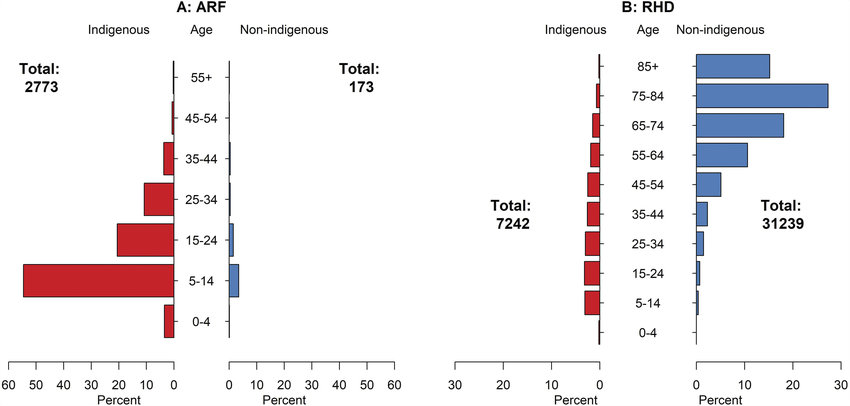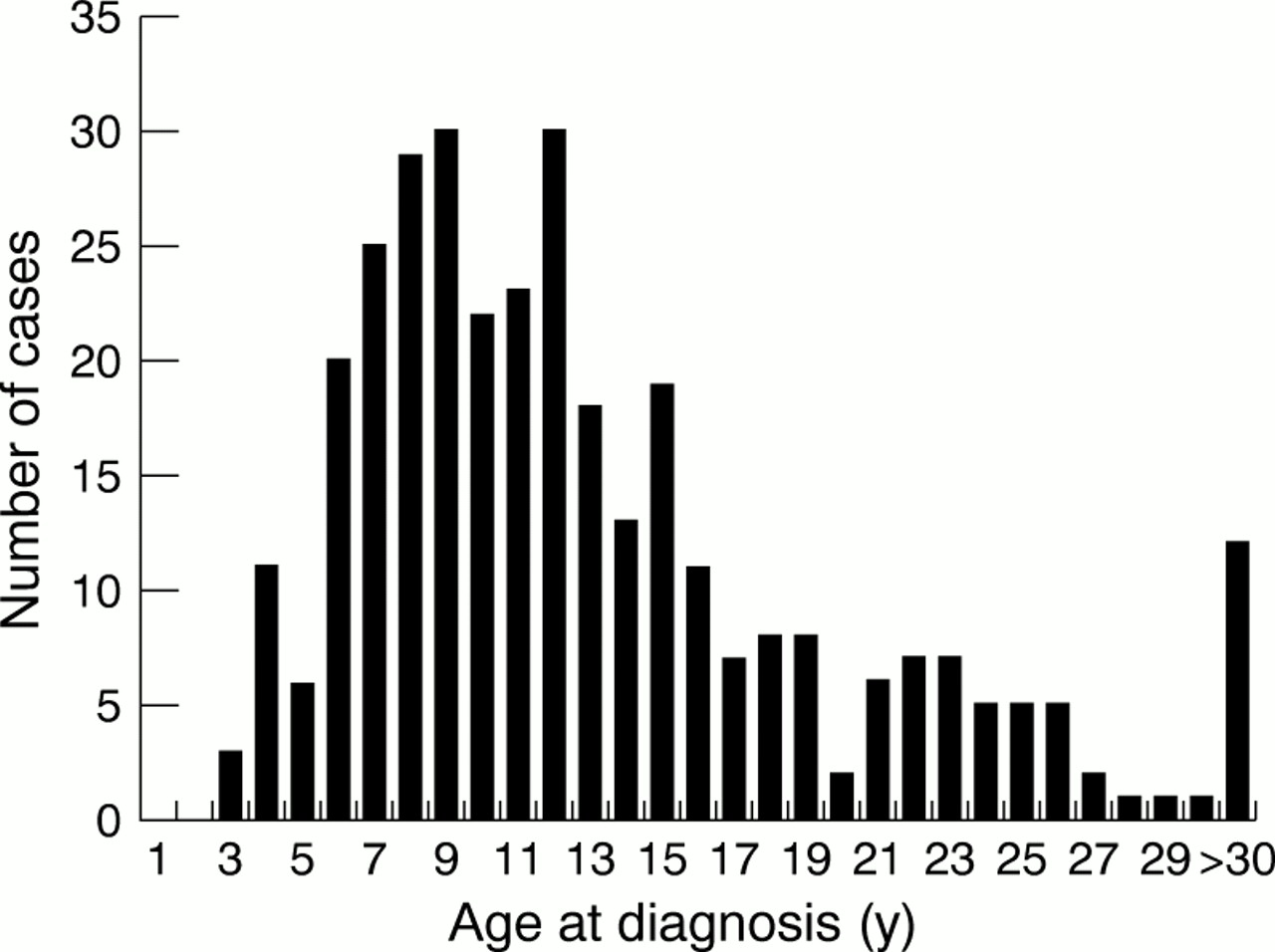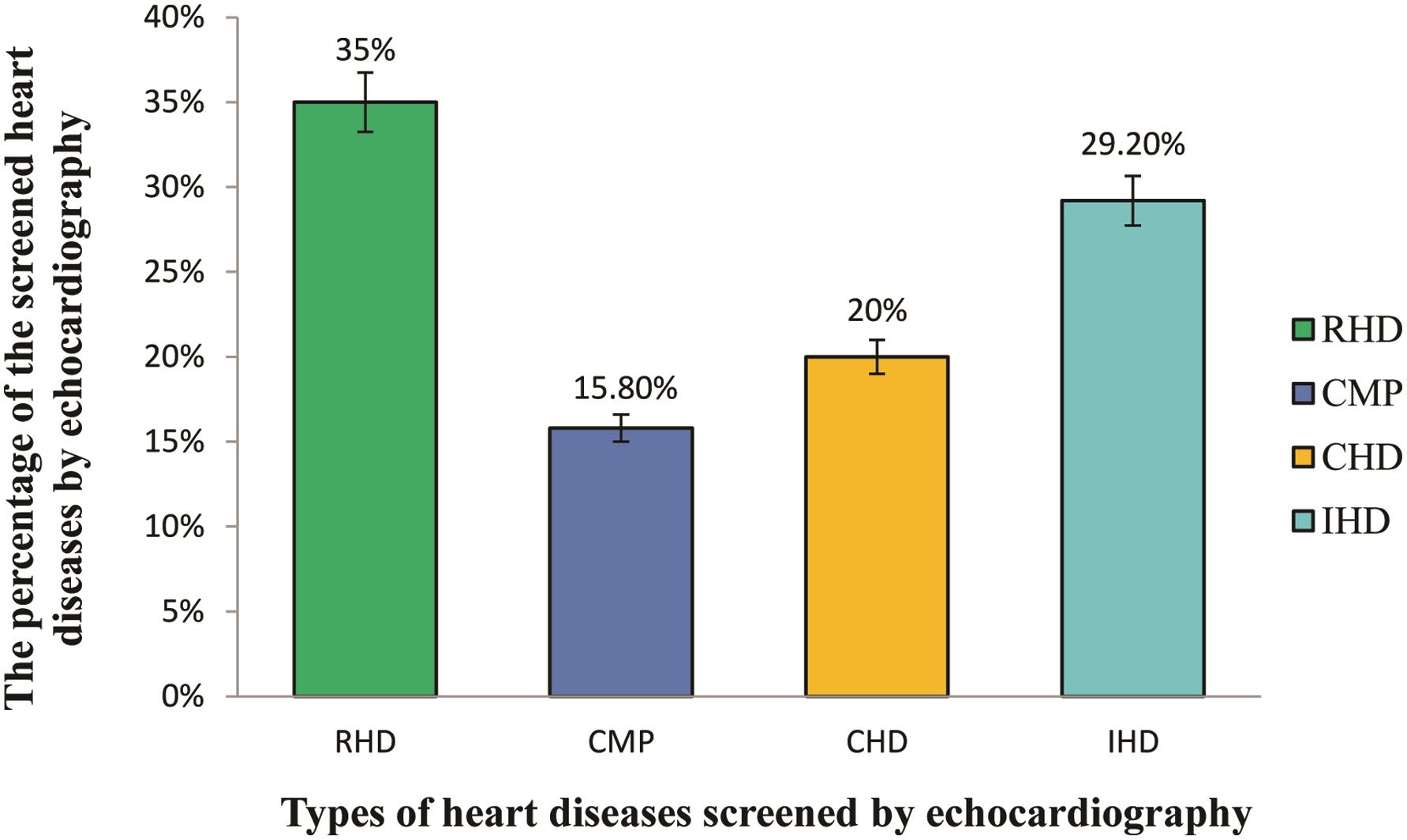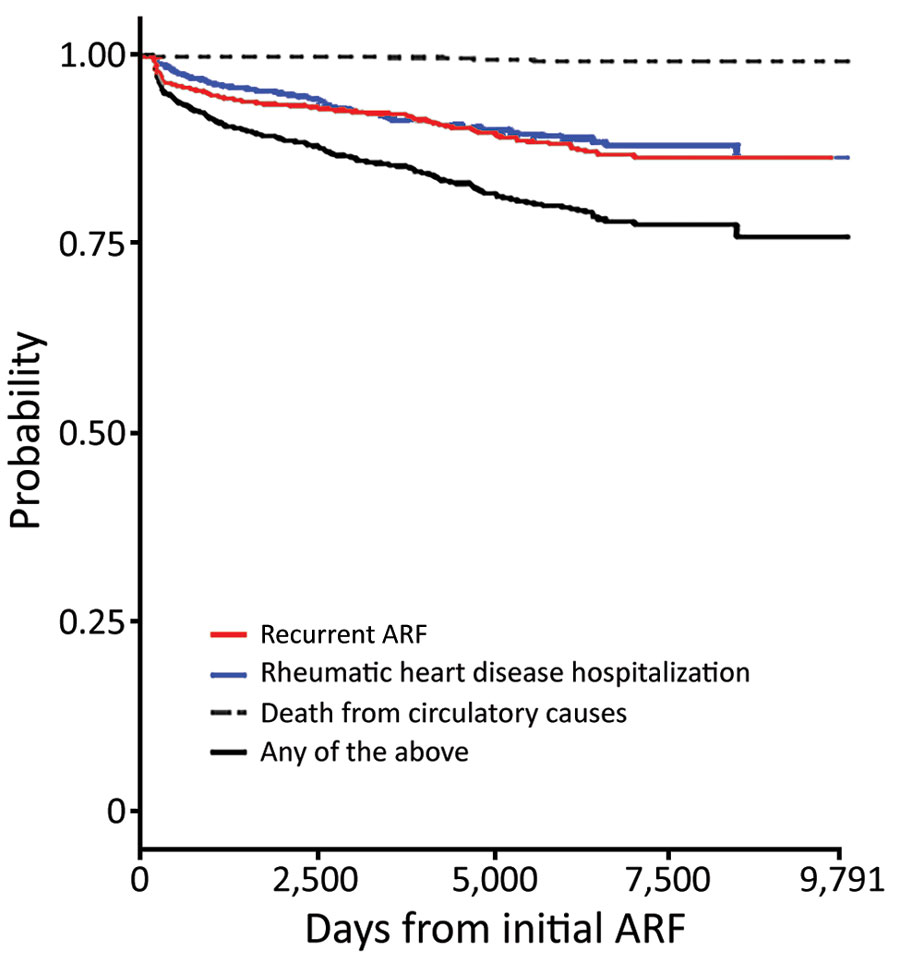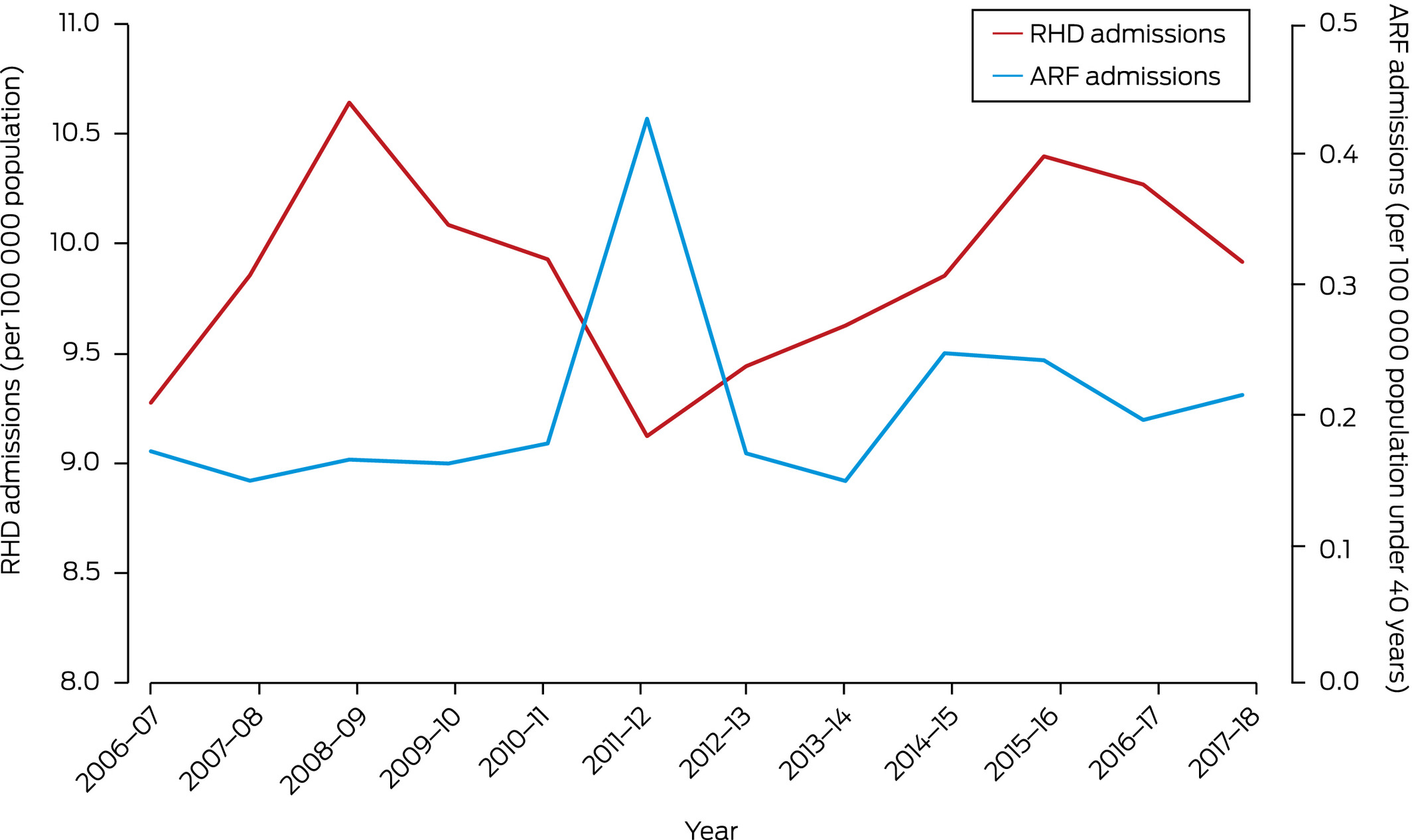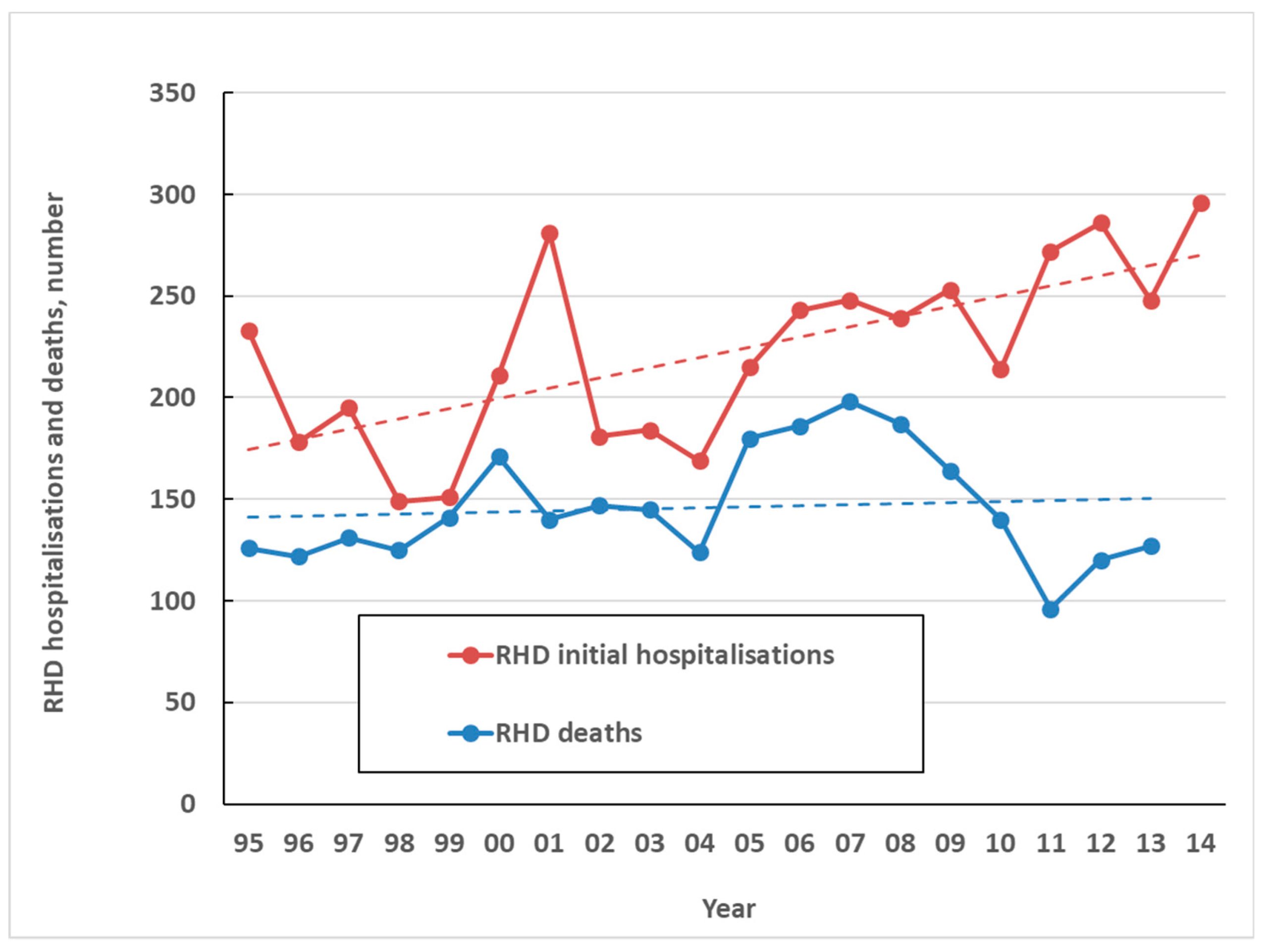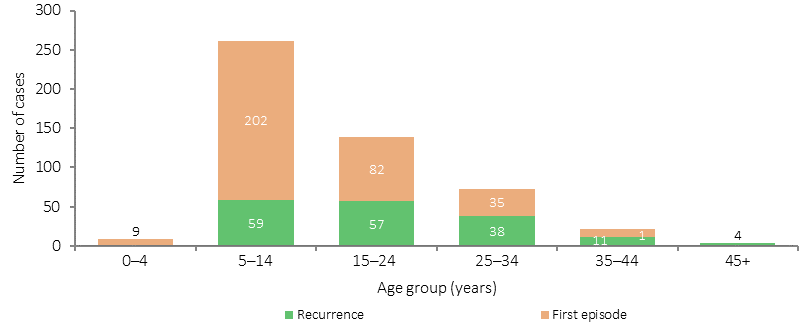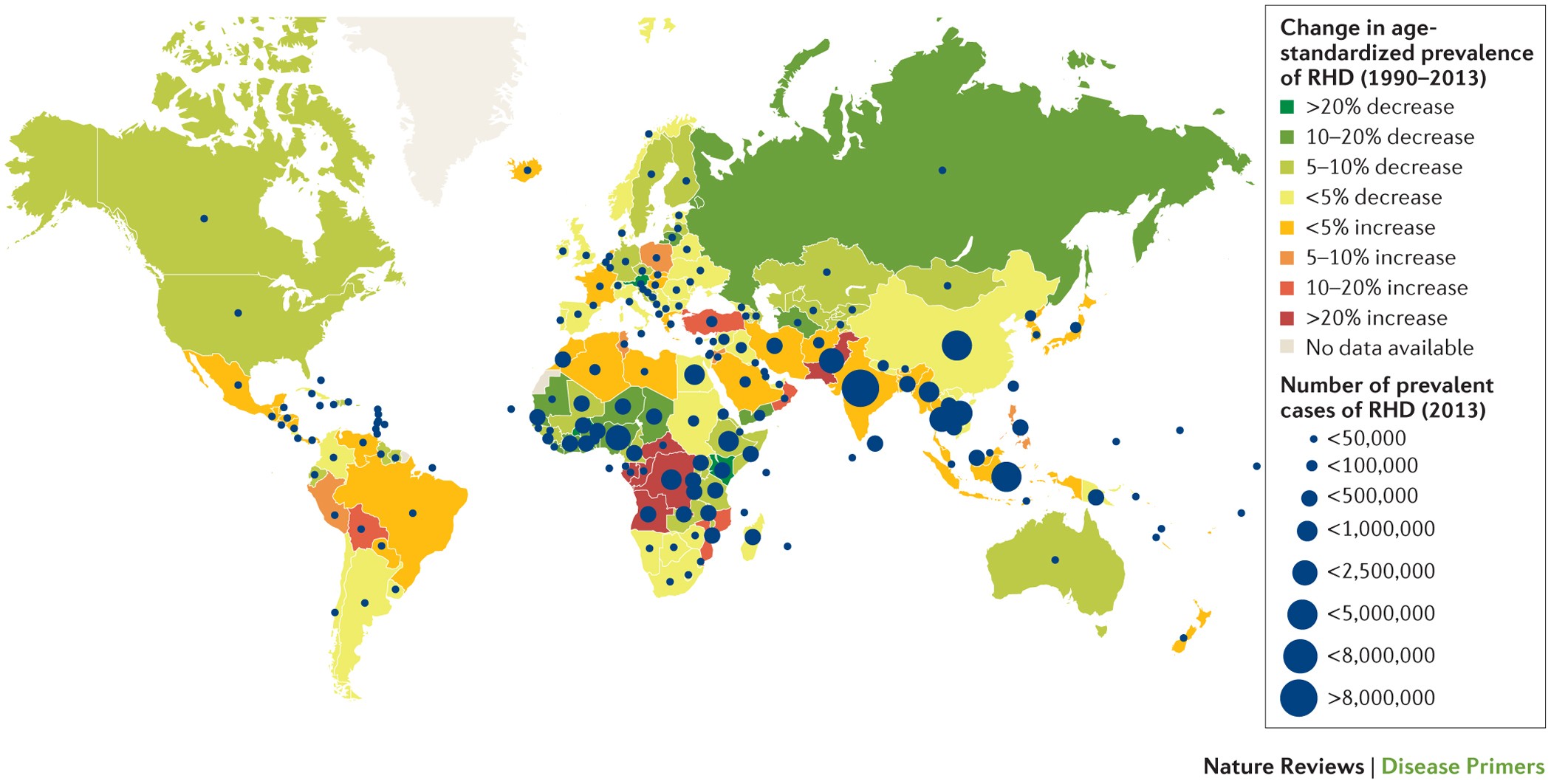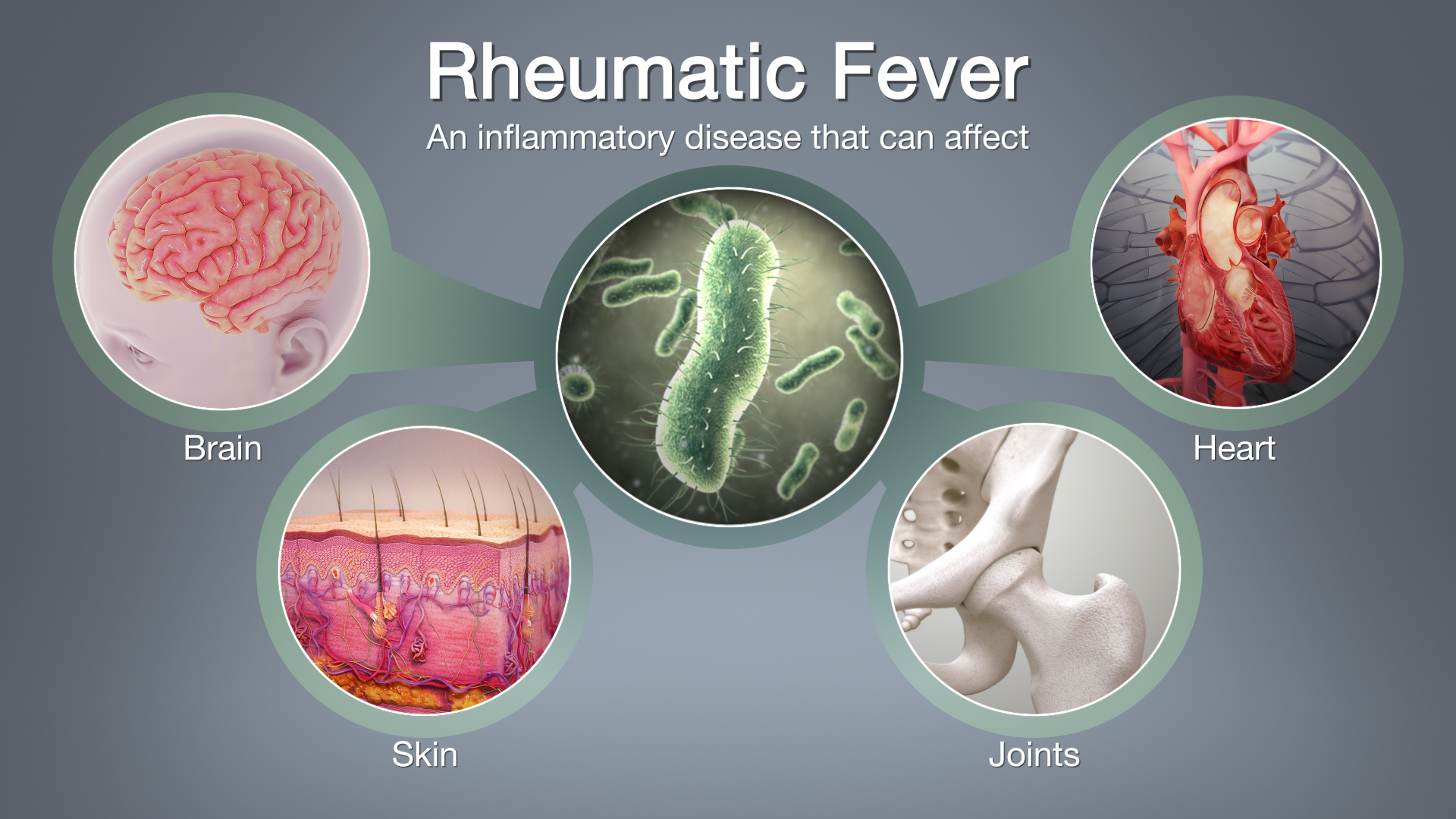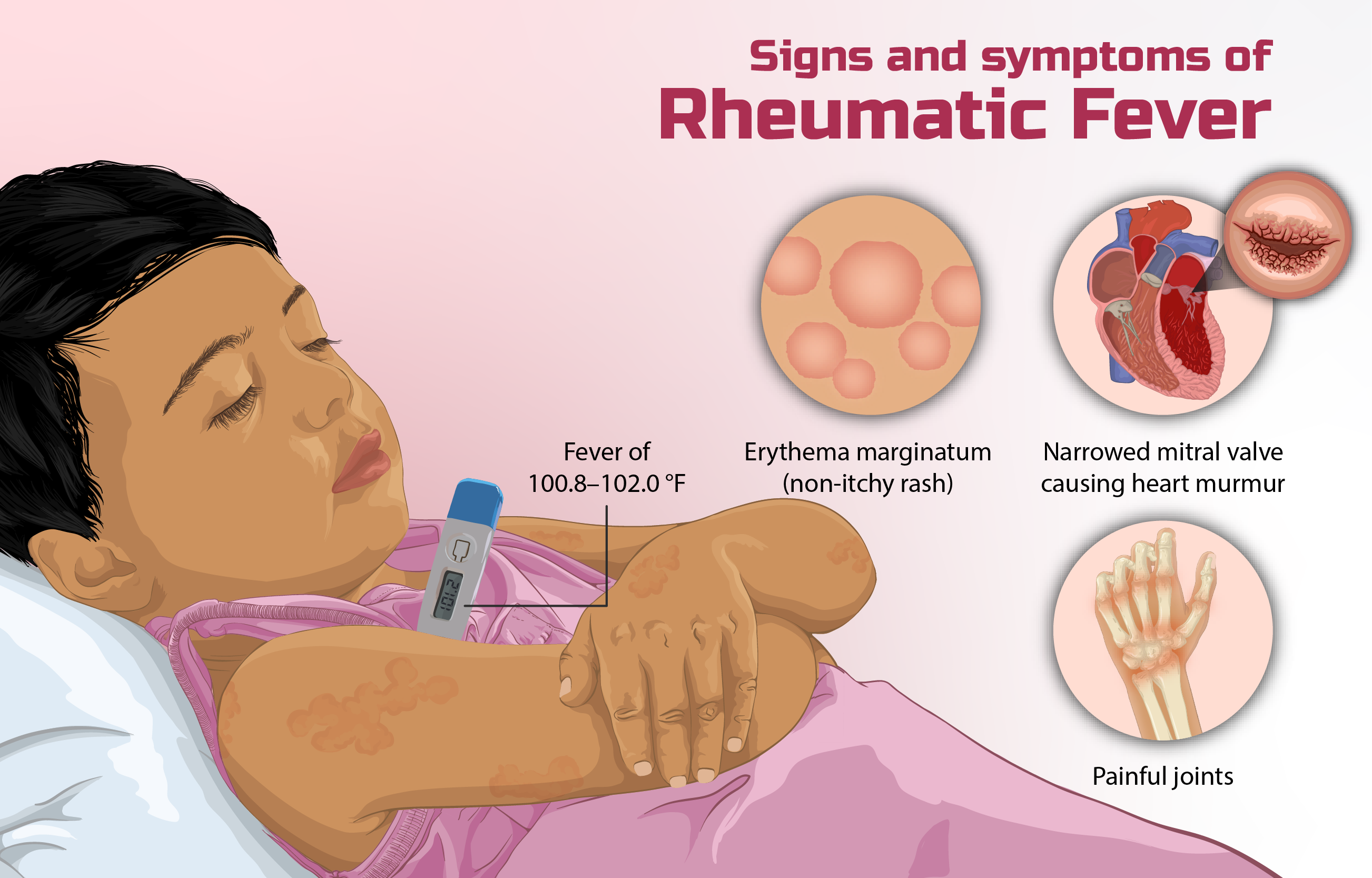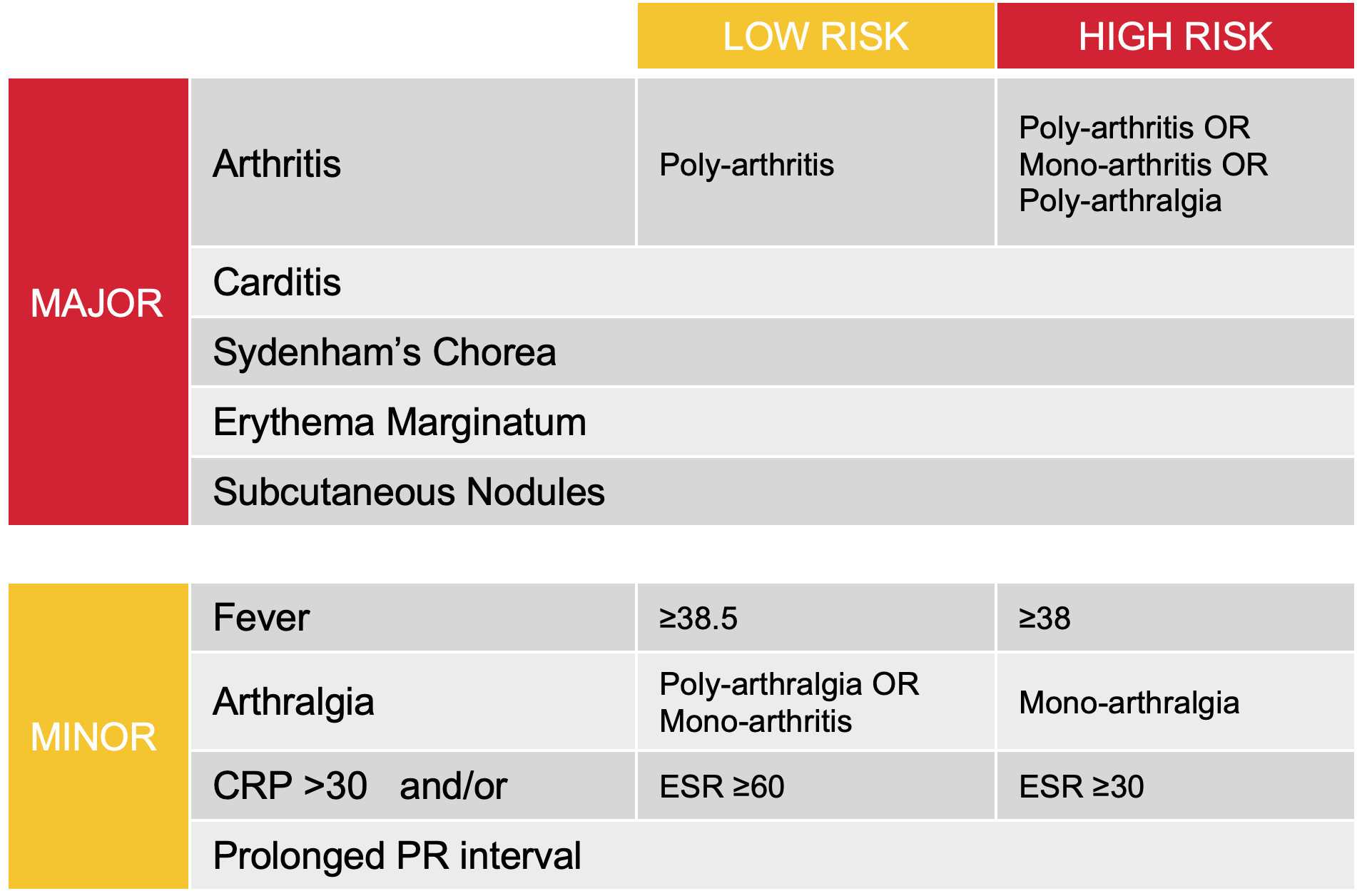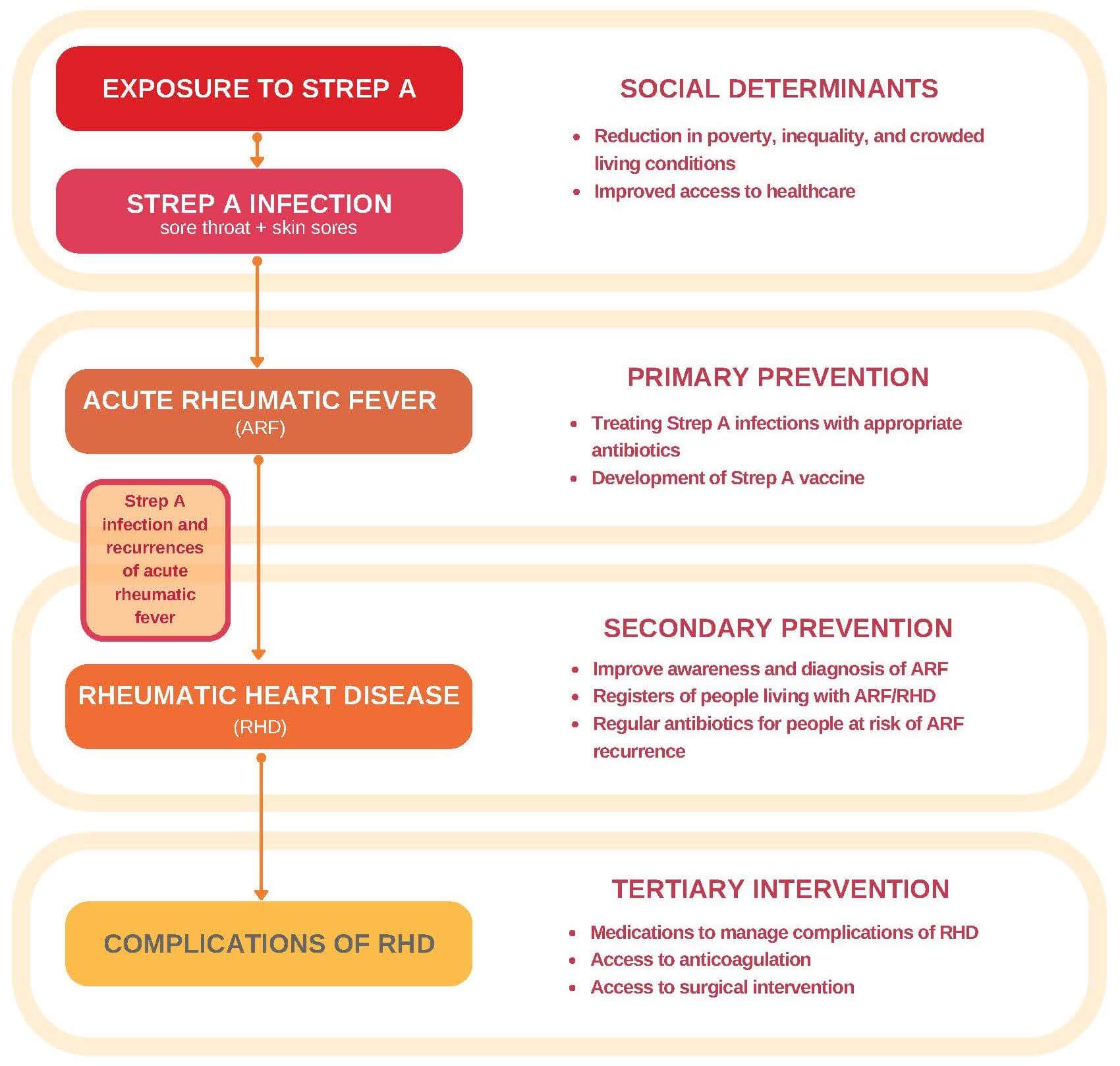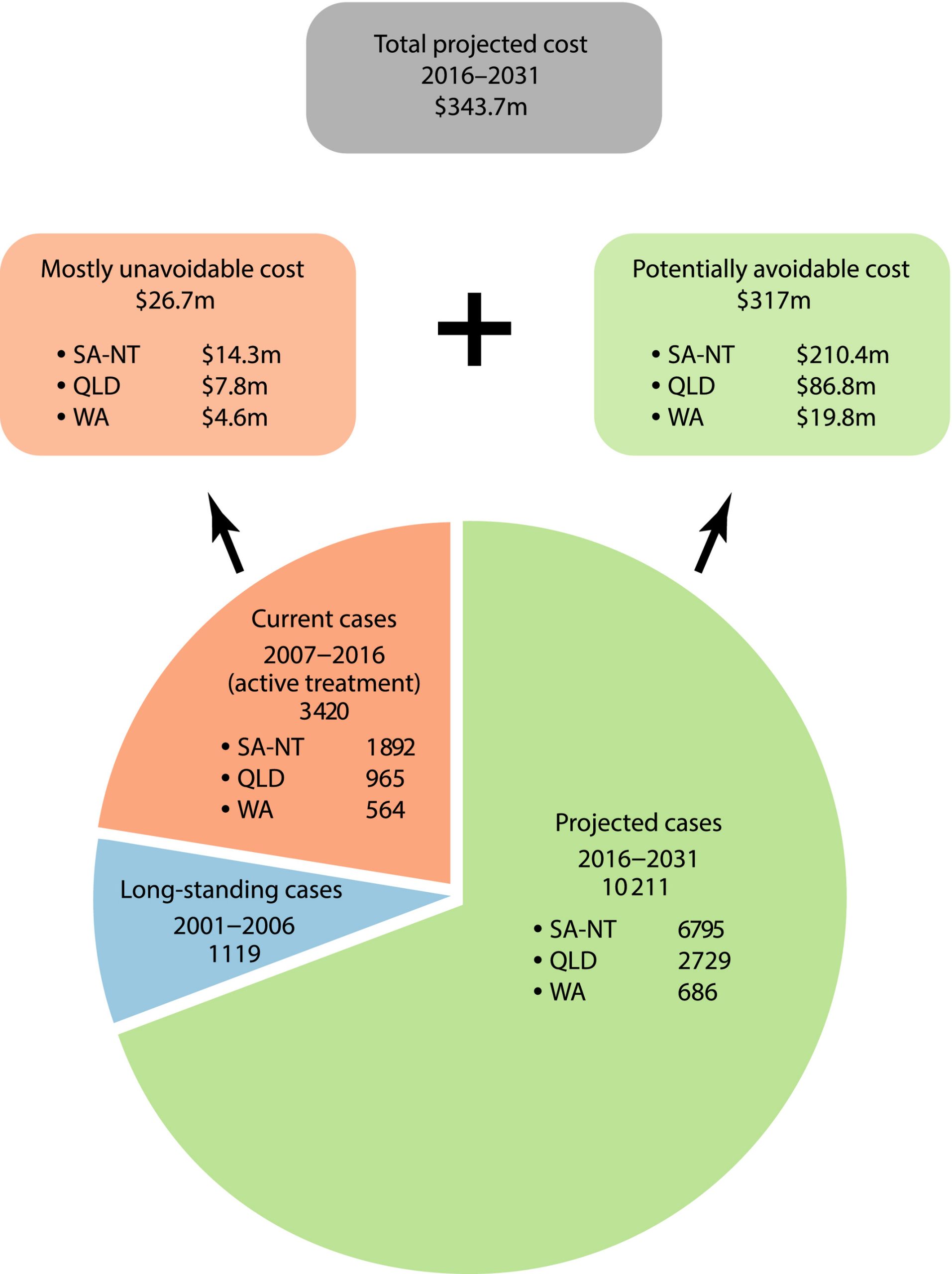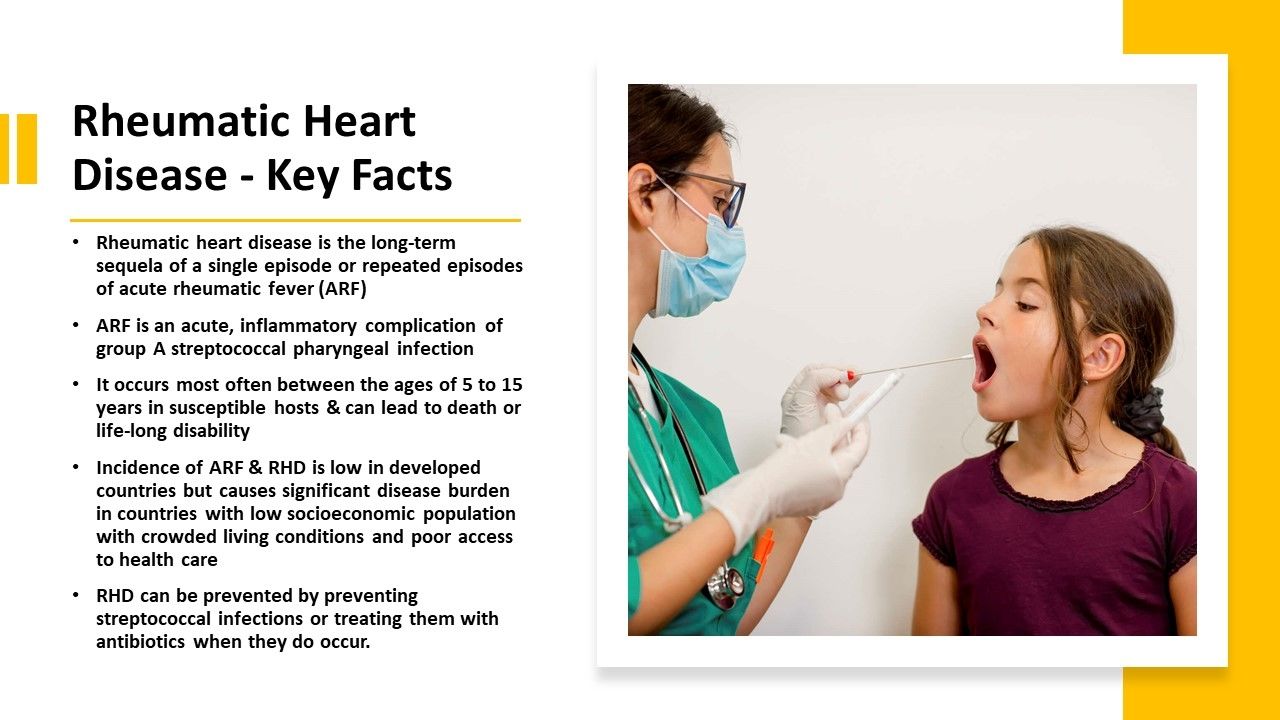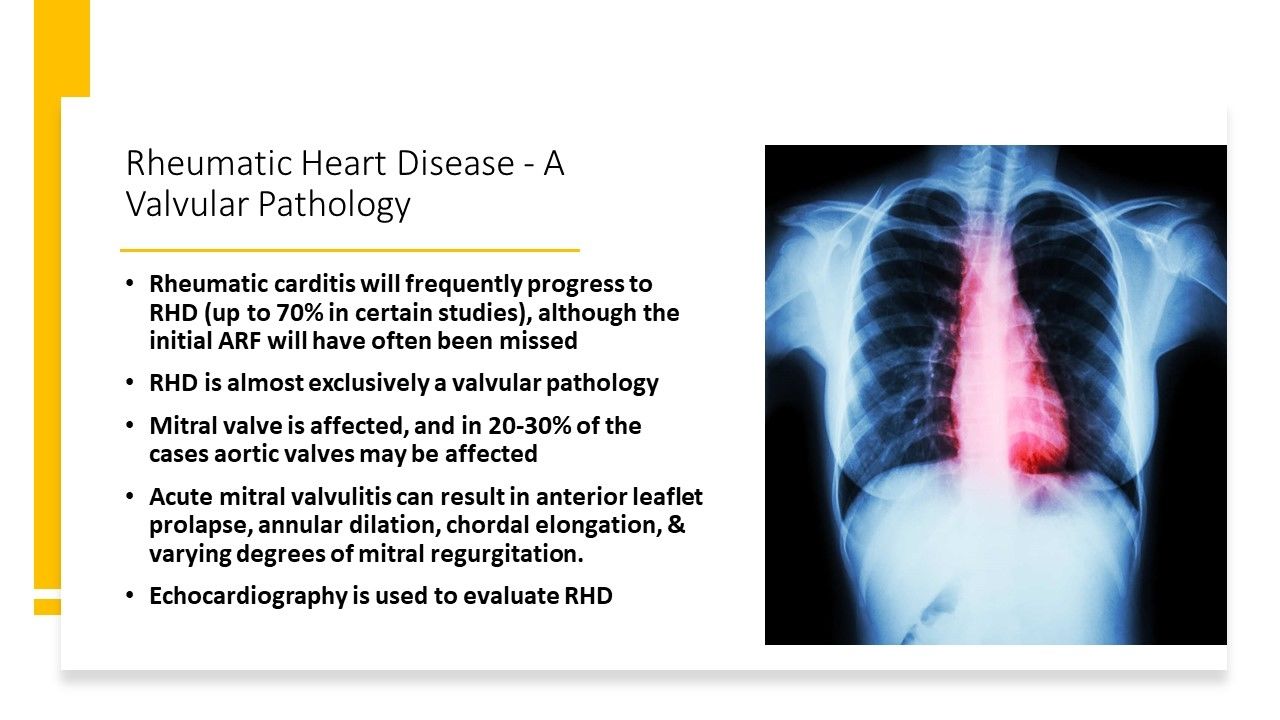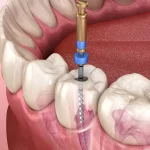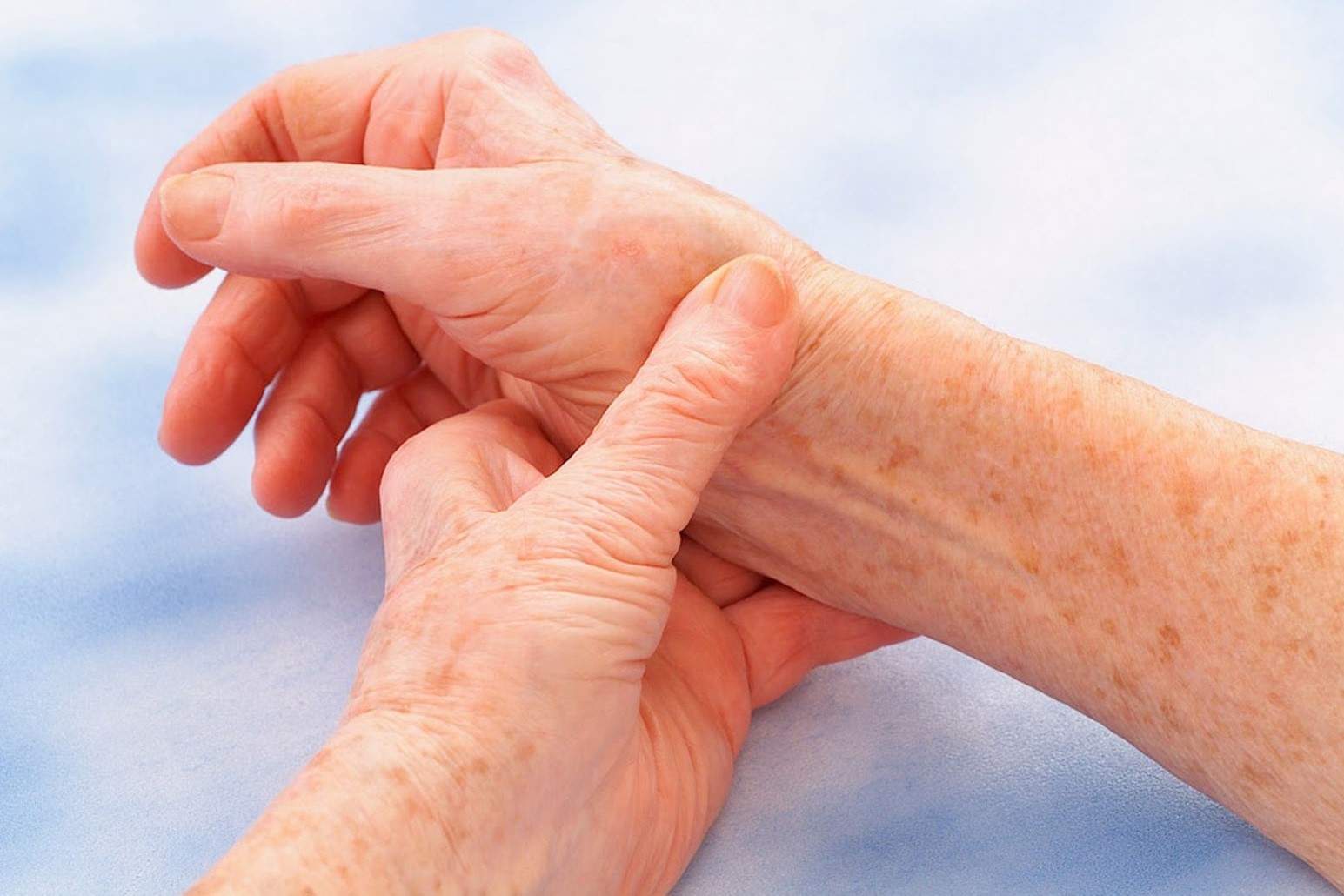
Key facts
- Rheumatic fever is an illness that can occur after an infection with a type of bacteria called group A streptococcus (commonly known as GAS or ‘strep A‘).
- Rheumatic fever affects many of the body’s tissues, especially those of the heart, joints, brain and skin.
- Children aged 5 to 15 years old are most at risk, especially Aboriginal and/or Torres Strait Islander children living in rural or remote areas or in difficult socio-economic
- Doctors diagnose rheumatic fever by assessing your symptoms.
- Rheumatic fever can be prevented by preventing or treating GAS infections appropriately.
What is rheumatic fever?
Rheumatic fever is an illness that can occur after an infection with a type of bacteria called group A streptococcus (commonly known as GAS or ‘strep A‘). It is an inflammatory disease that affects many parts of the body, especially the heart, joints, brain and skin.
What are the symptoms of rheumatic fever?
Symptoms and signs of rheumatic fever may include:
- fever and malaise (feeling unwell)
- chest pain
- difficulty breathing
- rapid heartbeat, or heart murmurs that may be detected by your doctor
- painful or swollen joints
- a rash on the trunk or limbs (although this is uncommon)
- jerky movements and difficulty walking
Many people with rheumatic fever may have suffered from a sore throat or skin infection 2 to 6 weeks before they notice other symptoms.
What causes rheumatic fever?
Rheumatic fever is caused by your body’s immune response to the GAS bacteria. GAS can cause infections in various parts of your body, including your throat and skin.
Rheumatic fever is caused by an autoimmune reaction to these bacteria. This means that your body’s immune system mistakenly attacks healthy body tissue, causing the symptoms of rheumatic fever.
Who is at risk?
Children aged 5 to 15 years old are most at risk, especially Aboriginal and/or Torres Strait Islander children living in rural or remote areas or in difficult socio-economic conditions.
When should l see my doctor?
If you have a fever and sore throat or a skin infection, you should see your doctor to see if you need to be treated for GAS, especially if you at a high risk of developing rheumatic fever.
How is rheumatic fever diagnosed?
There is no single test used to diagnose rheumatic fever. Doctors diagnose rheumatic fever using a checklist of symptoms.
If your doctor thinks that you may have rheumatic fever, they will examine you and refer you tests including:
- blood tests
- a throat swab
- an ECG
- an echocardiogram (an ultrasound of the heart)
These tests can help your doctor find out if you are likely to have rheumatic fever.
How is rheumatic fever treated?
If you have rheumatic fever, you will usually be admitted to hospital, where specialist doctors can look after you. Antibiotics and other medicines may be used to treat fever, heart and joint problems.
If your heart has been damaged, you may need to have heart surgery.
How can rheumatic fever be prevented?
Rheumatic fever can be prevented by preventing infection with GAS and by treating GAS infections quickly and appropriately.
If you have a throat or skin infection with GAS, see your doctor as soon as you can to ask whether you need antibiotics. If you are at a high risk of developing rheumatic fever, your doctor may prescribe you antibiotics to treat the infection. For people at low risk of developing rheumatic fever, the benefits of antibiotic treatment may not outweigh the risks. You can discuss this with your doctor.
If you have already had rheumatic fever, your doctor may prescribe regular antibiotics to prevent you from getting it again and to prevent complications such as rheumatic heart disease.
Hand washing and good personal hygiene can help prevent passing on the bacteria to others.
What are the complications of rheumatic fever?
The main complication of rheumatic fever is rheumatic heart disease (RHD).
RHD is when your heart valves are damaged by one or more episodes of rheumatic fever. Without ongoing treatment, people with RHD may develop heart failure or need heart surgery. Surgery does not cure RHD, but can improve the symptoms.
People living with advanced RHD need medical care and follow up for the rest of their lives.
